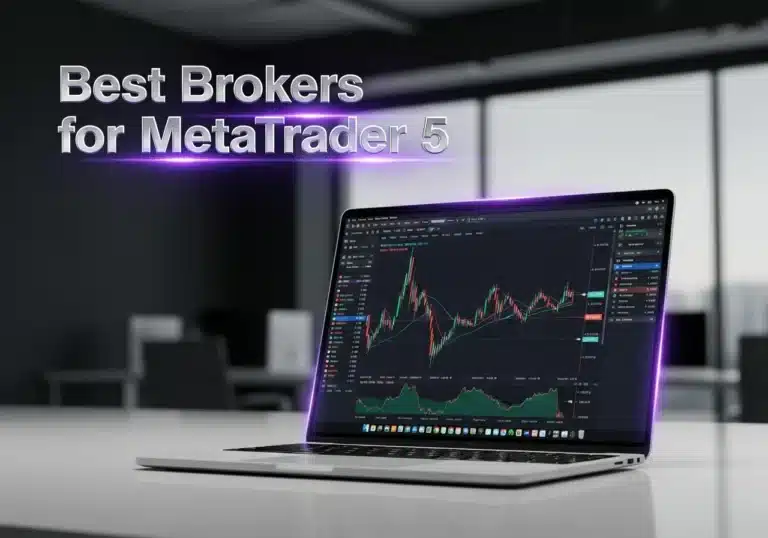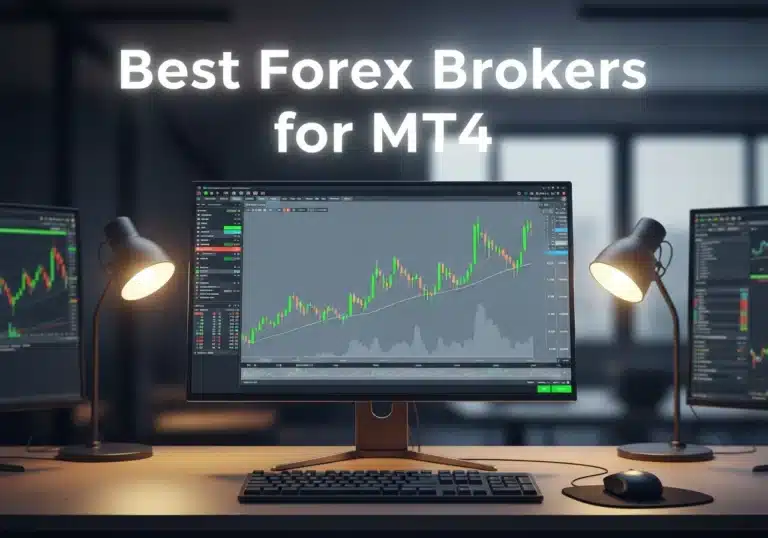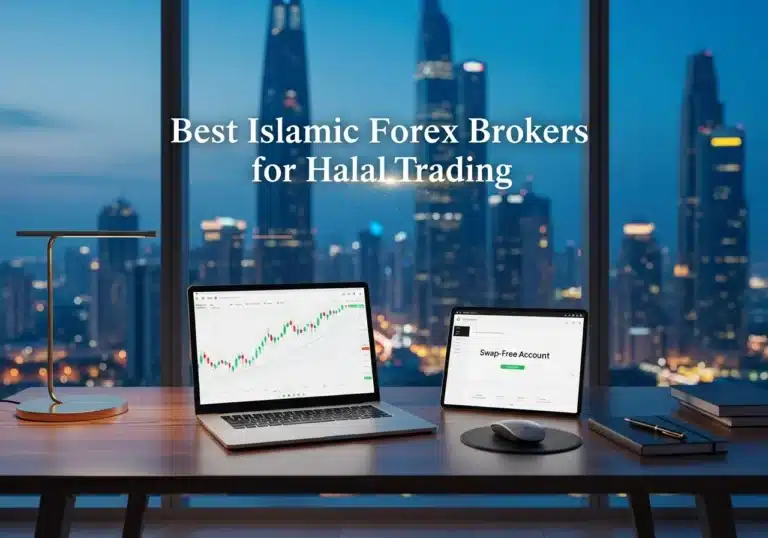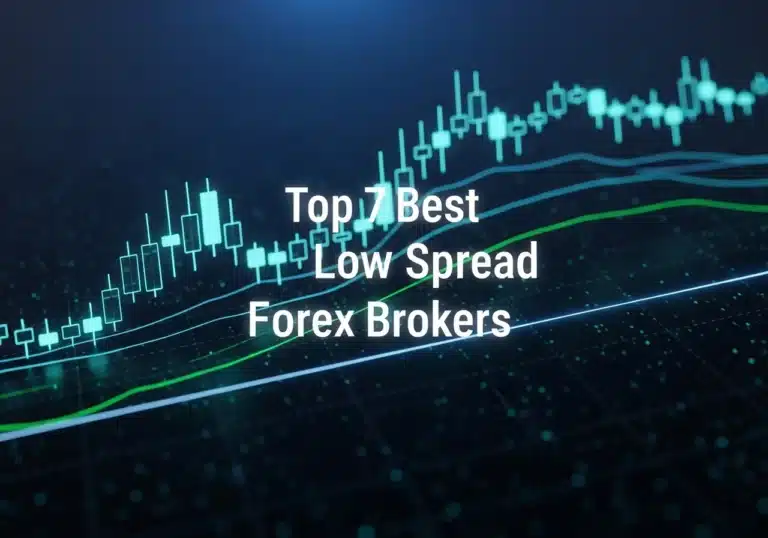Unlock the secrets to minimizing your forex trading costs and maximize your profits.
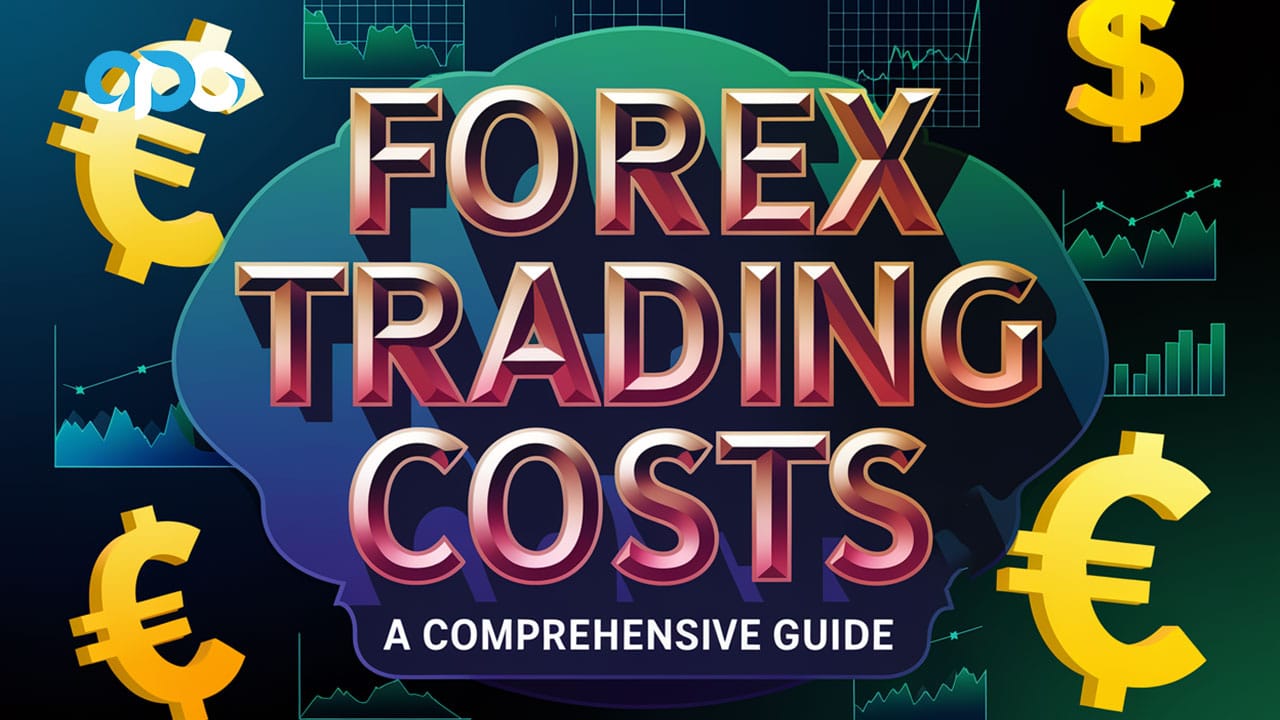
Introduction to Forex Trading Costs
Are you intrigued by the potential of forex trading but wary of hidden costs that could eat into your profits? Understanding forex trading costs is crucial for any trader aiming to succeed in the volatile currency markets. From spreads and commissions to overnight financing fees, knowing what you’re up against can make all the difference. In this comprehensive guide, we’ll delve deep into the various costs associated with forex trading, helping you navigate the complex landscape of fees and charges. Whether you’re trading through an online forex broker or considering different broker options, this guide will equip you with the knowledge to make informed decisions and optimize your trading strategy.
Forex trading offers immense opportunities for profit, but it’s not without its expenses. Every trade you execute comes with its own set of costs, and these can add up significantly over time. For both novice and seasoned traders, having a clear grasp of the cost of forex trading is essential for developing effective strategies and maximizing returns.
In the dynamic world of currency exchange, even small fees can erode your profits. Therefore, understanding and managing these costs isn’t just a good practice—it’s a necessity. Whether you’re looking for a regulated forex broker or exploring different platforms, being cost-conscious will enhance your trading performance.
Types of Forex Trading Costs
Understanding the different types of forex trading costs is essential for managing your expenses effectively. Below, we break down the most common fees and charges you might encounter when dealing with a forex trading broker.

Differentiate between common forex trading fees and charges to manage your expenses effectively.
Spreads
Definition and Explanation
In forex trading, the spread is the difference between the bid (selling) price and the ask (buying) price of a currency pair. It represents the primary cost of trading and is how most brokers make their money. Spreads can vary widely between brokers and can significantly impact your overall trading costs.
Fixed vs. Variable Spreads
- Fixed Spreads: Remain constant regardless of market conditions. They offer predictability, which can be advantageous in volatile markets. However, fixed spreads are typically higher than the lowest available variable spreads.
- Variable Spreads: Fluctuate based on market volatility and liquidity. During periods of high liquidity, variable spreads can be lower than fixed spreads, reducing the cost of forex trading.
Factors Influencing Spread Size
- Market Volatility: Higher volatility often leads to wider spreads as brokers hedge against increased risk.
- Liquidity of Currency Pair: Major pairs like EUR/USD usually have tighter spreads than exotic pairs due to higher trading volumes.
- Broker Type: Market makers may offer fixed spreads, while ECN brokers typically provide variable spreads. Choosing the right broker for forex trading can influence the spreads you pay.
Read More: The Role of Central Bank in Forex Trading
Commissions
How Brokers Charge Commissions
Some brokers charge a commission per trade instead of, or in addition to, spreads. This fee is usually a fixed amount per lot traded and can vary depending on the broker’s pricing model.
Differences Between Commission-Based and Commission-Free Accounts
- Commission-Based Accounts: Often offer tighter spreads but charge a commission per trade. This model can be cost-effective for high-volume traders who prefer lower spreads.
- Commission-Free Accounts: Charge no commission but may have wider spreads to compensate. This model simplifies the cost structure but can be more expensive in the long run due to higher spreads.
Overnight Financing (Swap/Rollover Fees)
Explanation of Holding Positions Overnight
If you hold a trading position past the market’s close, you’ll incur overnight financing fees, also known as swap or rollover fees. These fees are charged to account for the interest rate differential between the two currencies in a pair.
How Interest Rate Differentials Affect These Fees
The fee is calculated based on the interest rate differential between the two currencies in the pair you’re trading. If you’re buying a currency with a higher interest rate and selling one with a lower rate, you might earn a small amount instead of paying a fee. Conversely, if you’re buying a currency with a lower interest rate, you’ll pay the fee.
Example:
- Positive Swap: Buying AUD/JPY when the AUD interest rate is higher than the JPY rate.
- Negative Swap: Selling AUD/JPY under the same conditions.
Inactivity Fees
Conditions Under Which Brokers Charge Inactivity Fees
Brokers may charge a fee if your trading account remains inactive for a specified period, often ranging from a few months to a year. The fee compensates the broker for maintaining your account.
How to Avoid These Fees
- Regular Trading: Keep your account active by making at least one trade within the specified period.
- Close Unused Accounts: If you’re no longer using an account, consider closing it to avoid unnecessary charges.
- Check Broker Policies: Different brokers have varying policies on inactivity fees. Choosing a regulated forex broker with favorable terms can save you money.
Deposit and Withdrawal Fees
Potential Charges for Funding and Withdrawing from Trading Accounts
Some brokers impose fees when you deposit or withdraw funds, which can vary widely based on the broker and the payment method used.
Variations Based on Payment Methods
- Bank Transfers: May incur higher fees and take longer to process.
- Credit/Debit Cards: Often lower fees but may have limitations on transaction amounts.
- E-Wallets (e.g., PayPal, Skrill): Fees vary depending on the service provider but are usually processed quickly.
- Cryptocurrency: Some brokers accept cryptocurrencies, which can offer lower fees and faster processing times.
Currency Conversion Fees
Fees Incurred When Trading in a Currency Different from the Account’s Base Currency
If you trade currency pairs that differ from your account’s base currency, you might face conversion fees. These fees are applied when profits or losses are converted back to your base currency.
Impact on Overall Trading Costs
These fees can accumulate over time, especially for frequent traders dealing with multiple currency pairs, affecting your net profitability. Being mindful of currency conversion fees is an essential aspect of managing forex trading charges.
Factors Affecting Forex Trading Costs
Several factors can influence the total cost of forex trading. Being aware of these can help you minimize expenses and make informed decisions when choosing a forex trading broker.

Identify key factors that affect your trading costs and make informed choices.
Read More: Forex Trading Tools
Broker’s Pricing Model
Market Makers vs. ECN Brokers
- Market Makers: Set their own bid and ask prices, often offering fixed spreads. They act as the counterparty to your trades, which can lead to potential conflicts of interest.
- ECN Brokers: Provide direct access to the interbank market, usually with variable spreads and commissions. They match clients’ orders with other market participants, offering greater transparency.
Impact on Spreads and Commissions
Your choice of broker type will affect the spreads and commissions you pay. ECN brokers might offer tighter spreads but charge commissions, while market makers may offer commission-free trading with wider spreads.
Considerations:
- Trading Style: Scalpers may prefer ECN brokers for tighter spreads.
- Budget: Traders with smaller accounts might opt for market makers to avoid commissions.
Trading Volume
How Higher Volumes Can Lead to Reduced Costs
Brokers often offer lower spreads or commissions to traders who execute large volumes. High-volume traders contribute significantly to a broker’s revenue, incentivizing brokers to offer better rates.
Broker Incentives for High-Volume Traders
- Tiered Pricing: Reduced fees as your trading volume increases.
- VIP Accounts: Special accounts with lower costs, dedicated customer support, and additional perks like access to premium trading tools.
- Rebates: Cash back on commissions or spreads after reaching certain trading thresholds.
Market Conditions
Influence of Volatility and Liquidity on Spreads
- High Volatility: Can lead to wider spreads due to increased risk and rapid price movements. Events like economic news releases can cause volatility spikes.
- High Liquidity: Often results in tighter spreads. Major currency pairs during peak trading hours usually have the highest liquidity.
Best Times to Trade to Minimize Costs
- Overlap of Major Markets: Trading during the overlap of London and New York sessions can provide tighter spreads.
- Avoiding Low Liquidity Periods: Trading during holidays or off-peak hours can result in wider spreads and increased costs.
Currency Pairs
Major vs. Minor vs. Exotic Pairs
- Major Pairs: Most liquid and typically have the lowest spreads (e.g., EUR/USD, GBP/USD).
- Minor Pairs: Less liquid, higher spreads (e.g., EUR/GBP).
- Exotic Pairs: Least liquid, highest spreads and potential costs (e.g., USD/TRY).
How Pair Selection Affects Trading Expenses
Choosing more liquid pairs can significantly reduce your trading costs. Exotic pairs may offer higher volatility and potential profits but come with increased costs due to wider spreads and slippage.
Tips:
- Focus on Majors: Especially if you’re new to trading.
- Understand the Risks: Exotic pairs can be unpredictable and costly.
Strategies to Minimize Forex Trading Costs
Implementing effective strategies can help you keep your trading costs low and profits high. Being proactive about managing forex trading fees is a hallmark of successful traders.

Smart strategies can help you reduce your forex trading expenses and maximize gains.
Choosing the Right Broker
Importance of Comparing Brokers’ Fee Structures
Not all brokers are created equal. Comparing spreads, commissions, and other fees is vital. Look for a regulated forex broker that is transparent about their costs.
Factors to Consider:
- Regulation and Trustworthiness: Ensure the broker is regulated by reputable authorities like ASIC, FCA, or CySEC.
- Fee Transparency: Brokers should provide clear information about all fees.
- Customer Reviews: Read reviews to gauge other traders’ experiences.
Considering Additional Services and Support
- Educational Resources: Webinars, tutorials, and market analysis can enhance your trading skills.
- Customer Service Quality: Responsive support can save you time and stress.
- Trading Tools and Platforms: Advanced charting tools, indicators, and compatibility with platforms like MT4 or MT5.
Optimal Trading Times
Trading During High Liquidity Periods
Trade when the market is most active to benefit from tighter spreads. This typically includes:
- London Session: 8 AM to 4 PM GMT.
- New York Session: 1 PM to 9 PM GMT.
- Overlap Period: 1 PM to 4 PM GMT, when both sessions are open.
Avoiding Times of High Volatility to Reduce Slippage
High volatility can lead to slippage, increasing your trading costs. Be cautious around:
- Economic News Releases: Interest rate decisions, employment reports, GDP data.
- Unexpected Events: Political instability, natural disasters.
Effective Account Management
Regular Trading to Avoid Inactivity Fees
Stay active to avoid unnecessary fees. Even small trades can reset the inactivity timer.
Monitoring and Managing Open Positions to Minimize Overnight Fees
- Close Positions Early: If possible, close positions before the rollover time to avoid swap fees.
- Swap-Free Accounts: Some brokers offer Islamic accounts that don’t charge swap fees.
Additional Tips:
- Use Stop-Loss Orders: Protects your capital and can prevent positions from unintentionally rolling over.
- Plan Your Trades: Be mindful of the duration you intend to hold positions.
Read More: Forex Rollover Rates
Pro Tips for Advanced Traders
For seasoned traders looking to further reduce costs and maximize profits, consider these advanced strategies:
- Leverage Loyalty Programs: Some brokers offer loyalty programs that provide fee rebates or other cost-saving benefits. These can include reduced spreads, lower commissions, or even cash bonuses.
- Algorithmic Trading: Utilize automated strategies to execute trades more efficiently, potentially reducing slippage. Algorithmic trading can capitalize on market inefficiencies faster than manual trading.
- Hedging Techniques: Implement hedging to offset potential losses and manage overnight financing costs. By holding positions in opposite directions, you can minimize the impact of swap fees.
- Negotiating with Brokers: If you’re a high-volume trader, don’t hesitate to negotiate better terms with your broker. They may offer custom fee structures to retain your business.
- Utilize VPS Services: A Virtual Private Server can enhance the execution speed of your trades, reducing slippage and missed opportunities.
- Stay Informed About Market Conditions: Use economic calendars and news feeds to anticipate volatility and plan your trades accordingly.
Hidden Costs in Forex Trading
Even experienced traders can overlook some hidden costs. Being aware of these can further optimize your trading strategy.

Uncover hidden costs that could be affecting your forex trading profitability.
Slippage
Definition and Causes
Slippage occurs when an order is executed at a price different from the quoted price, often due to market volatility. Slippage can be positive or negative:
- Negative Slippage: Execution at a worse price than expected.
- Positive Slippage: Execution at a better price than expected.
How to Mitigate Its Impact
- Use Limit Orders: Ensure your orders are executed at your desired price.
- Trade During Stable Markets: Avoid highly volatile periods.
- Choose a Broker with Fast Execution Speeds: This reduces the likelihood of slippage.
- Monitor Market News: Be aware of events that can cause sudden price movements.
Platform Fees
Charges for Using Certain Trading Platforms or Tools
Some advanced trading platforms may come with subscription fees. These platforms might offer enhanced features like advanced charting, algorithmic trading capabilities, or access to premium indicators.
Evaluating the Necessity of Paid Features
Assess whether the benefits of premium tools outweigh their costs. If these tools significantly improve your trading performance, the investment may be justified.
Considerations:
- Trial Periods: Use free trials to test the platform.
- Cost-Benefit Analysis: Calculate whether the additional profits outweigh the platform fees.
Data Feed Fees
Costs for Real-Time Market Data
Access to live data feeds might require additional fees, especially for traders needing Level II data or depth of market information.
Assessing the Value for Individual Trading Strategies
If your strategy relies on real-time data, the extra cost may be justified. For long-term traders, delayed data might suffice.
Tips:
- Bundled Services: Some brokers include data feeds in their platform fees.
- Third-Party Providers: Compare costs from different data providers.
Opofinance Services
Looking for a regulated forex broker that offers competitive costs and exceptional services? Opofinance is an ASIC-regulated broker featured on the MT5 brokers list, ensuring a secure trading environment. With safe and convenient deposit and withdrawal methods, you can manage your funds with peace of mind.

Opofinance offers:
- Competitive Spreads and Low Commissions: Helping you minimize forex trading fees.
- Advanced Trading Platforms: Including MT5, catering to both novice and advanced traders.
- Social Trading Service: An innovative feature allowing you to follow and replicate the strategies of successful traders. This can be a game-changer in minimizing your forex trading costs and maximizing your profits.
- Educational Resources: Access to webinars, tutorials, and market analyses.
- Excellent Customer Support: Dedicated support to assist you with any queries.
Choosing a regulated forex broker like Opofinance can enhance your trading experience by providing transparency, security, and competitive pricing.
Conclusion
Understanding the myriad of forex trading costs is essential for any trader aiming for long-term success. By being aware of the different fees—spreads, commissions, overnight financing, and more—you can make informed decisions that align with your trading strategy. Remember, the key to profitable trading isn’t just about making the right trades; it’s also about managing and minimizing costs.
By selecting the right forex trading broker, optimizing your trading times, and implementing cost-effective strategies, you can significantly reduce your expenses. Conduct thorough research, choose your broker wisely, and implement strategies to keep your expenses low. Your wallet will thank you, and your trading journey will be all the more rewarding.
Key Takeaways
- Understand All Costs: Be aware of all the fees involved in forex trading to avoid surprises.
- Choose the Right Broker: A broker’s fee structure can significantly impact your profitability.
- Trade Smart: Implement strategies to minimize costs, like trading during high liquidity periods and monitoring overnight positions.
- Stay Informed: Regularly review your trading costs and adjust your strategies accordingly.
- Leverage Broker Services: Utilize features offered by brokers like Opofinance to enhance your trading experience.
What is the difference between fixed and variable spreads?
Fixed spreads remain constant regardless of market conditions, providing predictability in trading costs. They are set by the broker and are typically slightly higher to account for market volatility. Variable spreads fluctuate based on market volatility and liquidity, potentially offering lower costs during stable periods but higher costs during volatility. Variable spreads reflect the actual market conditions and can tighten during high liquidity.
How do overnight financing fees affect long-term trading strategies?
Overnight financing fees, or swap fees, can accumulate over time and significantly impact the profitability of long-term positions. These fees are charged daily for holding positions overnight. Traders holding positions for extended periods should factor these costs into their strategies, as they can turn profitable trades into losses over time. Utilizing swap-free accounts or adjusting trading strategies can mitigate this impact.
Can I negotiate fees with my forex broker?
In some cases, especially for high-volume traders, brokers may be open to negotiating spreads and commissions. It’s worth discussing your trading volume and needs with your broker to see if better terms are available. Building a relationship with your broker and demonstrating consistent trading activity can provide leverage for negotiation.


